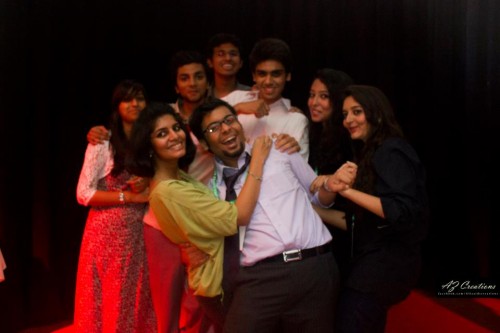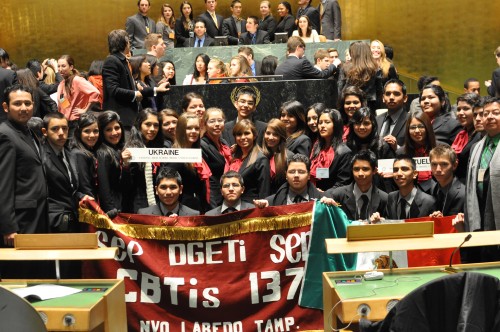When delegates on both the high school and college circuits are asked their favorite aspect of Model UN, many will point to their teammates. Several MUN teams consider themselves a family- a perspective which is not at all surprising when one considers that we spend some of our most exhilarating experiences of our high school and college careers with our MUN teammates. Model UN conferences have a unique combination of intensity and fun that forges lasting bonds and friendships. As a student leader in your Model UN program or as a faculty advisor you may find yourself responsible for continuing this unity and shaping the team culture in a positive direction. Here are a few key tips to assist you.

Make sure that your team members care about each other and lend each other support.
Welcoming New Members
Whether your club is highly competitive and based on tryouts or welcome to all, make sure you are creating an environment in which new members feel comfortable and accepted. Although this is slightly easier for selective teams in which newcomers feel like they have earned a spot in an exclusive, all tightly knit groups have a hard time integrating the new kid on the block into their already established culture. Icebreakers are a great solution; although they may induce groans, enduring this somewhat cringeworthy endeavor can be a great bonding experience on its own. “Speed dating” games can also achieve similar goals. They genuinely serve as a platform to introduce yourself and get over any initial awkwardness between members.
Creating Togetherness
Perhaps one of the most important aspects of being a leader on your MUN team is fostering team unity. At my school, where we pride ourselves on a very closely knit team, we follow each conference with a reflection session. In these reflection sessions, we allow every delegate who attended their conference to have a platform to share their thoughts. This practice of allowing everyone to be open to sharing their thoughts and reflections creates more openness, transparency, and intimacy. Ultimately, it makes for a set of loyal teammates that are committed to each other. Such unity can help your team perform better in committee- it gives every a delegate a backdrop of a supportive community that is rooting for them. Knowing that your teammates have got your back provides you with confidence; it also gives delegates the feeling that they are a part of something larger- a feeling that will push them to strive harder in the committee room.

The PAKMUN team grooved to some catchy tunes at the Casino Night– Dance Party!
Tradition
This is another hallmark of successful teams on the MUN circuit. Most MUN teams dedicate a lot of time and energy to the club, so much time in fact that the vast majority of teams develop their own nuanced cultures and philosophies, and the maintenance of this tradition can do wonders for a team. It can be in the form of institutionalized knowledge such as having graduating seniors write down their strategies in MUN guides for younger members or creating a database to store old research. Tradition also is more simply lasting parts of a team’s culture. This can be as simple as a team chant, having the whole team wear a certain color on certain days of a conference, eating at one restaurant every year before a specific conference that your team attends annually, etc. In my high school, we contact alumni the night before every national conference and have them send out a motivational email and a few words of wisdom. Having long-lasting traditions creates pride and loyalty from delegates toward their team. Shared traditions bring a team closer together and inspire a team to keep pushing in an effort to maintain their legacy. When delegates have pride they have an urge not to let their teammates or their legacy down, this will motivate your delegates to a whole new extent.

CBTIS I37 from Mexico gets a team picture at the UN General Assembly Hall
Conclusion
Managing a Model UN team is hard work. In between the flurry of logistical concerns and training and coordinating with administration and secretariats of conferences, team culture can become an afterthought. However, team unity is an essential part of developing a successful team that wins awards and of creating an enriching and enjoyable experience for your delegates. Leave some of your own team’s traditions in the comments!

